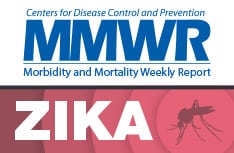Zika and Animals
What we know

There have not been any reports of pets becoming sick with Zika.
- Zika spreads to people primarily by the bite of an infected mosquito.
- The only animals that we know can get sick from Zika are nonhuman primates (for example, apes and monkeys), which may have mild illness with fever when infected.
- There have not been any reports of pets or other types of animals becoming sick with Zika.
- Current studies suggest that other animals do not contribute to the spread of Zika.
- There is no evidence that Zika spreads to people from direct contact with animals (for example, touching, licking, coughing, sneezing).
- In tropical Africa and South America, mosquitoes may get infected by feeding on nonhuman primates with Zika. Those infected mosquitoes may then bite and infect a person, but this is thought to be rare.
- More research is needed to better understand Zika in animals.
Zika in animals
Nonhuman primates (for example, apes and monkeys) can become infected with Zika. Zika was first discovered in a monkey with a mild fever in the Zika Forest of Uganda in the 1940s. We do not know how often apes and monkeys are infected with Zika. A few studies suggest that apes and monkeys infected with Zika may have a fever or mild symptoms. More research is needed to better understand the role apes and monkeys play in spreading Zika to people.
Limited studies show that apes and monkeys infected with Zika during pregnancy can develop severe fetal brain defects.
One study done in Indonesia in the late 1970s showed that horses, cows, carabaos (water buffaloes), goats, ducks, and bats could become infected with Zika, but there is no evidence that they get sick or can spread Zika to people. There have not been any reports of pets or other types of animals becoming sick with Zika.
Risk to monkeys and apes in the United States
The risk of apes and monkeys in the United States becoming infected with Zika virus is low. All apes and monkeys imported into the United States undergo a mandatory 31-day quarantine period on arrival.
- The apes and monkeys are held indoors or in screened enclosures where it is unlikely they will have contact with mosquitoes.
- Any ape or monkey that may have entered quarantine while infected with Zika virus is not likely to pass it to others.
- If infected, apes and monkeys may be able to spread Zika for a limited time. This could occur if an uninfected mosquito bites a recently infected animal during the period of time when the virus is found in the ape or monkey’s blood, typically during the first week of infection. All imported apes and monkeys should be free of Zika by the end of the quarantine period and pose no risk of infecting local mosquitoes.
Bringing pets or other animals into the United States
Some animals, including apes and monkeys, are not allowed to be imported as pets under any circumstances. Each state and US territory has its own rules for pet ownership. Find more information about animal importation on CDC’s Importation website.


